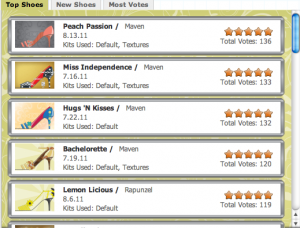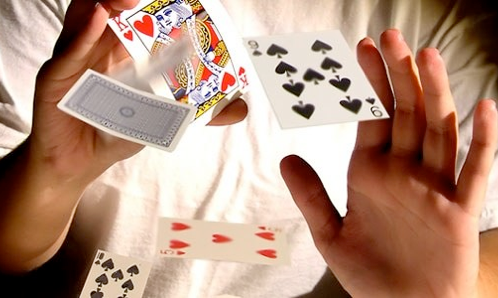I am concerned that Gamefication obfuscates the real issue in learning:
Transfer.
Is there evidence that game-based learning leads to far transfer?
Without learning transfer, it doesn’t matter how a person learned–whether from a piece of software, watching an expert, rote memorization, or the back of cereal box. What is important is that learning occurred, and how we know that learning occurred.
This leads to issues of assessment and evaluation.
Transfer and Games:Â How do we assess this?
The typical response from gameficators is that assessment does not measure the complex learning from games. I have been there and said that. Â But I have learned that is overly dismissive of assessment and utterly simplistic. As I investigated assessment and psychometrics, I have learned how simplistic were my statements. Games themselves are assessment tools, and I learned that by learning about assessment.
This Gameficator–(yes I am now going to 3rd person)–had to seek knowledge beyond his ludic and narratological powers. He had to learn the mysteries and great lore of psychometrics, instructional design, and educational psychology. It was through this journey into the dark arts, that he has been able to overcome some of the traps of Captain Obvious, and his insidious powers to sidetrack and obfuscate through jargonification,and worse–like taking credit for previously documented phenomena by imposing a new name. . . kind of like my renaming Canada to the now improved, muchmorebetter name: Candyland.
In reality, I had to learn the language and content domain of learning to be an effective instructional designer, just as children learn the language and content domains of science, literature, math, and civics.
What I have learned through my journey, is that if a learner cannot explain a concept, that this inability to explain and demonstrate may be an indicator that the learning from the game experience is not crystallized–that the learner does not have a conceptual understanding that can be explained or expressed by that learner.
Do games deliver this?
Does gamefied learning deliver this?
Gameficators need to address this if this is to be more than a captivating trend.
I am fearful that the good that comes from this trend will not matter if we are only creating  jargonification (even if it is more accessible). It is not enough to redescribe an established instructional design technique if we cannot demonstrate its effectiveness.  We should be asking how learning in game-like contexts enhances learning and how to measure that.
 Measurement and testing are important because well-designed tests and measures can deliver an assessment of crystallized knowledge–does the learner have a chunked conceptual understanding of a concept, such as “resistance”, “average”, “setting”?
Measurement and testing are important because well-designed tests and measures can deliver an assessment of crystallized knowledge–does the learner have a chunked conceptual understanding of a concept, such as “resistance”, “average”, “setting”?
Sure, students may have a gist understanding of a concept. The teacher may even see this qualitatively, but the student cannot express it in a test. So is that comprehension? I think not. The point of the test is an un-scaffolded demonstration of comprehension.
Maybe the game player has demonstrated the concept of “resistance” in a game by choosing a boat with less resistance to go faster in the game space– but this is not evidence that they understand the term conceptually. This example from a game may be an important aspect of perceptual learning, that may lead to the eventual ability to explain (conceptual learning); but it is not evidence of comprehension of “resistance” as a concept.
So when we look at game based learning, we should be asking what it does best, not whether it is better. Games can become a type of assessment where contextual knowledge is demonstrated. But we need to go beyond perceptual knowledge–reacting correctly in context and across contexts–to conceptual knowledge: the ability to explain and demonstrate a concept.
My feeling is that one should be skeptical of Gameficators that pontificate without pointing to the traditions in educational research. If Gamefication advocates want to influence education and assessment, they should attempt to learn the history, and provide evidential differences from the established terms they seek  to replace.
A darker shadow is cast
Another concern I have is that  perhaps not all gameficators are created equal. Maybe some gameficators are not really advocatingfor the game elements that are really fundamental aspects of games? Maybe there are people with no ludic-narratological powers donning the cape of gamefication! I must ask, is this leaderboard what makes for “gameness”? Or does a completion task-bar make for gamey experience?
Maybe there are people with no ludic-narratological powers donning the cape of gamefication! I must ask, is this leaderboard what makes for “gameness”? Or does a completion task-bar make for gamey experience?
Does this leaderboard for shoe preference tell us anything but shoe preference? Where is the game?
Are there some hidden game mechanics that I am failing to apprehend?
Is this just villainy?
Here are a couple of ideas that echo my own concerns:
It seems to me, that:
- some of the elements of gamefication rely heavily on aspects of games that are not new, just rebranded.
- some of the elements of gamefication aren’t really “gamey”.
What I like about games is that games can provide multimodal experiences, and provide context and prior knowledge without the interference of years of practice-this is new. Games accelerate learning by reducing the some of the gatekeeping issues. Now a person without the strength, dexterity and madness can share in some of the experience of riding skateboard off a ramp.  The benefit of games may be in the increased richness of a virtual interactive experience,  and provide the immediate task competencies without the time required to become competent. Games provide a protocol, expedite, and scalffold players toward a fidelity of conceptual experience.
For example, in RIDE, the player is immediately able to do tricks that require many years of practice because the game exaggerates the fidelity of experience. Â This cuts the time it might take to develop conceptual knowledge but reducing the the necessity of coordination, balance, dexterity and insanity to ride a skateboard up a ramp and do a trick in the air and then land unscathed.
Gameficators might embrace this notion.
Games can enhance learning in a classroom, and enhance what is already called experiential learning.
My point:
words, terms, concepts, and domain praxis matter.
Additionally, we seem to be missing the BIG IDEA:
- that the way we structure problems is likely predictive of a successful solutionHerb Simon expressed the idea in his book The Sciences of the Artificial this way:
“solving a problem simply means representing it so as to make the solution transparent.” (1981: p. 153)
Games can help structure problems.
But do they help learners understand how to structure a problem. Do they deliver conceptualized knowledge? Common vocabulary indicative of a content domain?
The issue is really about What Games are Good at Doing, not whether they are better than some other traditional form of instruction.
Do they help us learn how to learn? Do they lead to crystallized conceptual knowledge that is found in the use of common vocabulary? In physics class, when we mention “resistance”, students should offer more than
“Resistance is futile”
or, a correct but non-applicable answer such as “an unwillingness to comply”.
The key is that the student can express the expected knowledge of the content domain in relation to the word. This is often what we test for. So how do games lead to this outcome?
I am not hear to give gameficators a hard time–I have a gamefication badge (self-created)–but I would like to know that when my learning is gamefied that the gameficator had some knowledge from the last century of instructional design and learning research, just as I want my physics student to know that resistance as an operationalized concept in science, not a popular cultural saying from the BORG.
The concerns expressed here are applicable in most learning contexts. But if we are going to advocate the use games, then perhaps we should look at how good games are effective, as well as how good lessons are structured. Perhaps more importantly,
- we may need to examine our prevalent misunderstandings about learning assessment;
- perhaps explore the big ideas and lessons that come from years educational psychology research, rather than just renaming and creating new platform without realizing or acknowledging, that current ideas in gamefication stand on the established shoulders of giants from a century of educational research.
Jargonification is a big concern. So lets make our words matter and also look back as we look forward. Games are potentially powerful tools for learning, but not all may be effective in every purpose or context. What does the research say?
I am hopeful gamefication delivers a closer look at how game-like instructional design may enhance successful learning.







